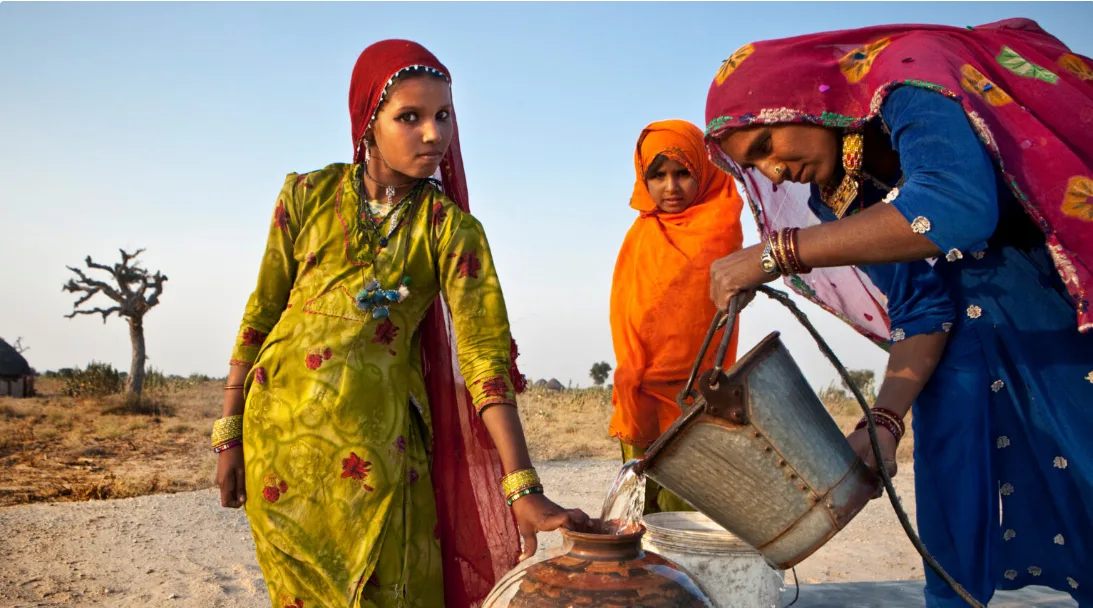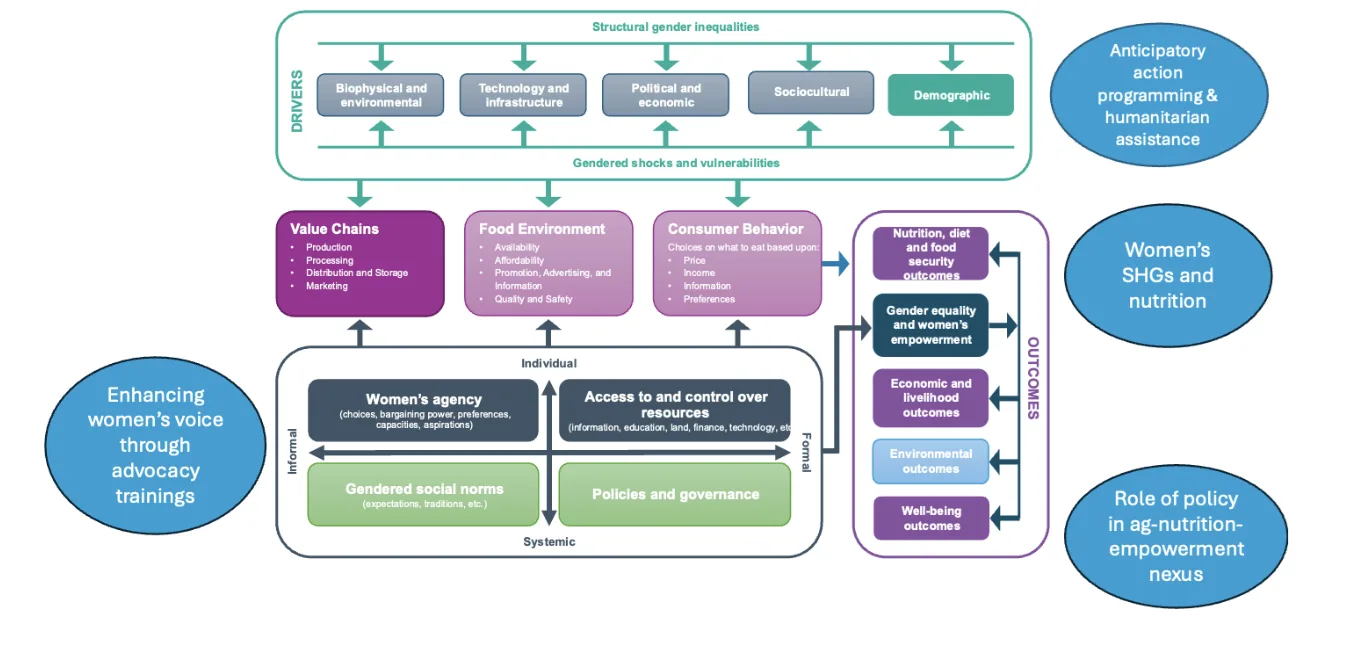In this Article
Recent studies on empowering women in fragile food systems were featured during the IFPRI-organized session at the non-governmental organization (NGO) forum on the 69th Commission on the Status of Women, held at United Nations Headquarters in New York. Research shows that when given the means, voice, and recognition, women take action to enhance their well-being and the resilience of their households and communities.

Image Source: IFPRI
Research shows that women play a crucial role in farming across value chains and food systems, but climate change, conflict, and forced migration are causing them to find themselves in fragile settings. This creates new challenges in achieving gender equity and empowerment in food systems.
Women are particularly vulnerable in fragile- and conflict-afflicted environments. The United Nations Food Systems Summit Gender and Food Systems Framework demonstrates how the food system drivers are rooted in a gendered social, political, institutional, and economic systems with structural gender inequalities that shape individuals’ and households’ risks and vulnerabilities. Consequently, these factors impact the three primary elements of food systems – value chains, food environments, consumer behavior, and their results, including nutrition, diet and food security, gender equality and women’s empowerment, economic and livelihood outcomes, environmental outcomes, and well-being outcomes.

IFPRI organized a session at the NGO Forum on empowering women in fragile food systems, focusing on self-help groups, anticipatory action programming and humanitarian assistance, communication and advocacy skills training, and policymaking process for agriculture and nutrition. The session concluded that intentional design, local buy-in, sustained support, and the policy environments translating gender commitments into action must empower women in fragile food systems. Fragile settings can increase women’s risks and the transformative potential of inclusive programming, yielding broad benefits across food security, health, and governance and offering a pathway toward more resilient and equitable food systems.
Reference:
Quisumbing A., et. al. (25, April 2025). Pathways to power in fragile settings: Rethinking women’s roles in agriculture and food systems. International Food Policy Research Institute. Retrieved May 7, 2025 from https://www.ifpri.org/blog/pathways-to-power-in-fragile-settings-rethinking-womens-roles-in-agriculture-and-food-systems/




